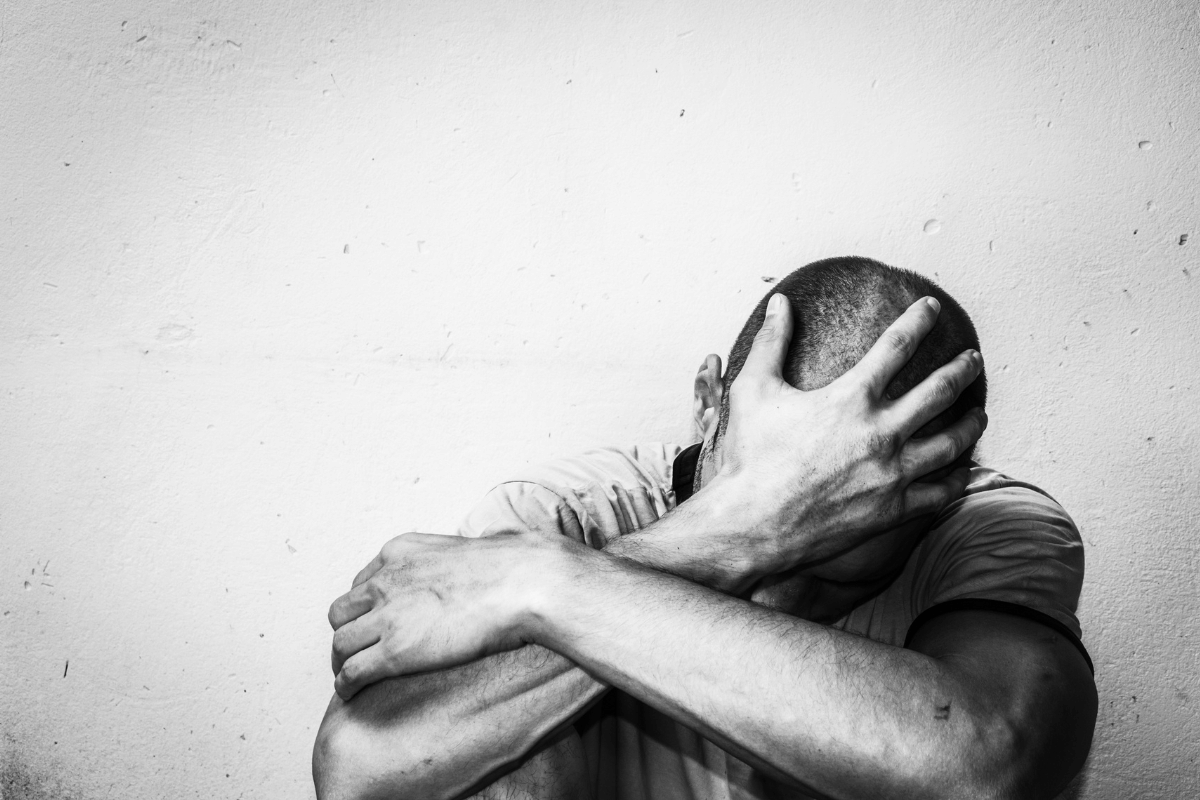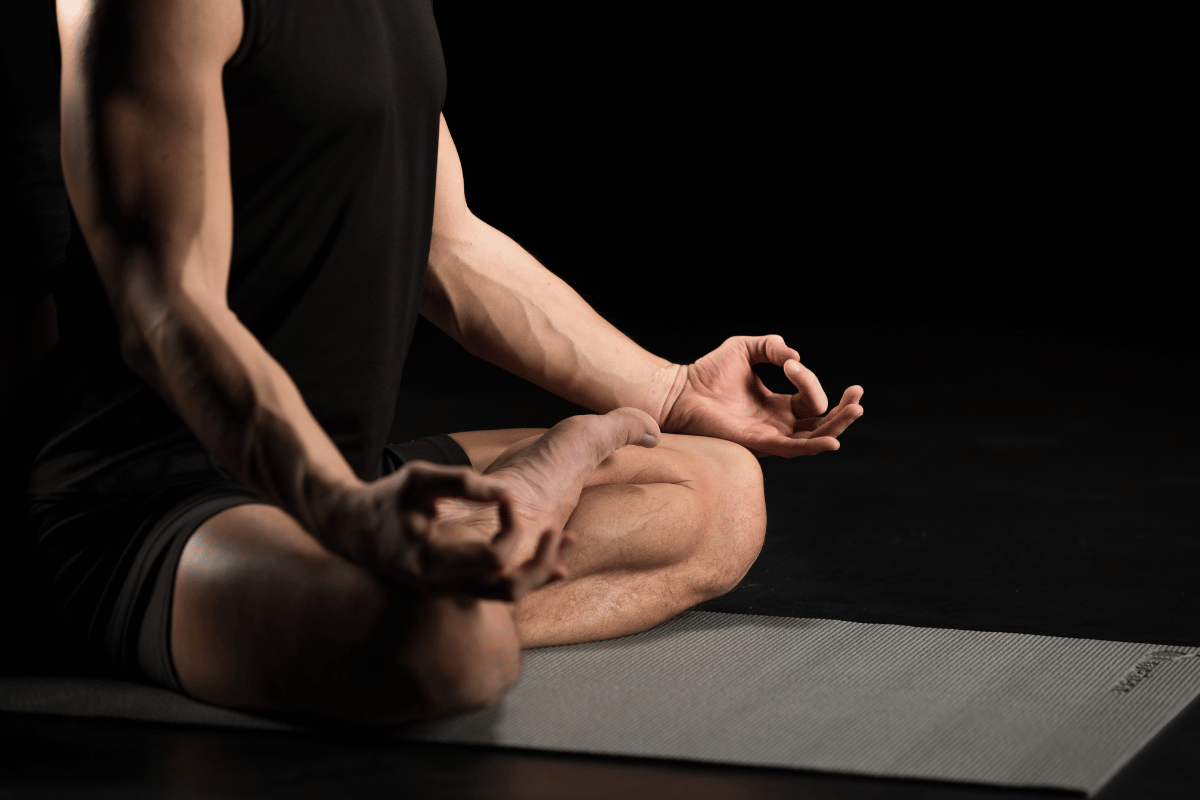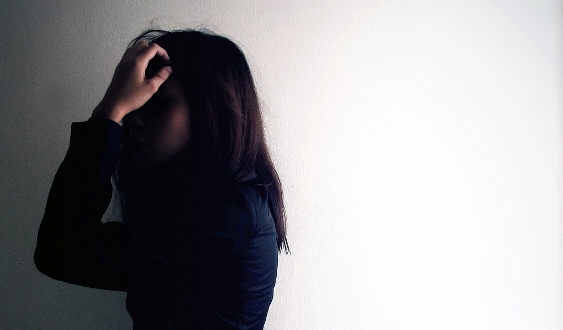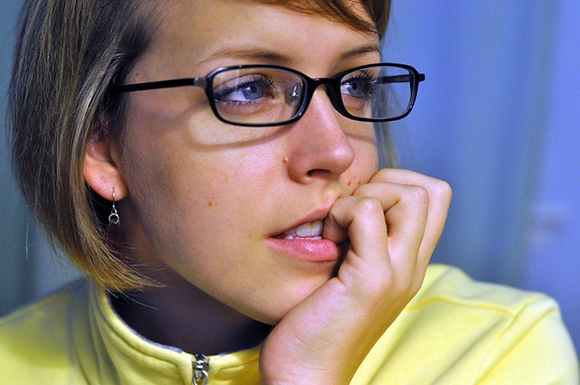Anxiety does not empty tomorrow of its sorrows, but only empties today of its strength.
—Charles Spurgeon
Lying in bed, I looked up at the ceiling desperately praying for rain. I thought, if only it were to rain, I would be safe this weekend. A simple bout of precipitation could save me from my unforgiving struggle with anxiety.
Do you want to know what I was so terrified of experiencing that weekend that drove me to such desperation? A baseball tournament.
My Struggle With Anxiety
You see, I was fourteen years old and had just made it onto a top-level showcase team. These were travel teams you played on with the hopes of being noticed by college or professional scouts.
It was a dream come true to land a spot on this team. So why then was I trying my hardest to avoid my first tournament?
Well, it was all due to my ongoing struggle with anxiety. At this point, I had developed such deep-rooted anxiety when it came to baseball that the joy had been completely sucked out of the game. I still had the desire to play, but my anxiety was getting to the point where I needed a solution.
Sadly, I didn’t find one, at least not then.
I dealt with my anxiety off and on with differing levels of severity throughout my high school and college years.
While in college, my struggle with anxiety intensified. This was mainly due to the added pressure I had put on myself to succeed in baseball. I was now a starter on my college team, but this only meant more anxiety rather than a reprieve.
My anxiety stemmed from a bad case of fear of failure. This is when we are so afraid to make a mistake or be perceived as a failure that we do all we can to make sure that doesn’t happen. I will go into more detail on this later.
As my performances dwindled due to anxiety, I was faced with two choices: give up baseball and be free from the anxiety or figure out how to overcome the anxiety.
If you’ve experienced this level of anxiety you know that giving up one activity only opens the door for the anxiety to creep into another area of your life. So, I knew there was only one true option.
I had to figure out how to navigate and conquer my struggle with anxiety.
I employed the services of a sports psychology consultant during my sophomore year in college. Since then, I have been on an upward climb out of the depths of anxiety. What I would like to do is show you the daily routine I developed in order to overcome my anxiety.
Before I go into the routine I now use, it will be beneficial to highlight the main symptoms I experienced from my anxiety, to help you in identifying and understanding it within yourself.
Symptoms of Anxiety

When we are talking about the symptoms of anxiety, which in this case can be best described as performance anxiety, there are two categories: a behavioral response and then the physical symptoms that are felt.
The reason for this lies in how our bodies respond to anxiety. There will be a physiological change that occurs when we perceive a threatening situation. That is where the physical symptoms begin to present themselves.
Next, there will be a behavioral response that occurs when we instinctually attempt to rid ourselves of the anxiety.
Physical Symptoms:
- Rapid heartbeat
- Dry mouth
- Trembling hands and knees
- Shaky voice
- Sweating
- Dizziness
- Blurred vision
- Light-headedness
- Feeling of coldness
These are all pretty typical whenever we are feeling nervous or anxious. The ones that really impacted me the most were trembling hands and knees, a shaky voice, and light-headedness.
I can remember being up to bat and feeling my whole body tremble. It’s hard enough to hit a baseball even without your body shaking.
Also, I know I have focused mainly on baseball, but I experienced anxiety in social situations too. This is where I mainly dealt with a shaky voice.
I once gave a presentation in class where I was laughed at because it sounded as if I was going to cry, that’s how shaky my voice was.
All of these physical symptoms can be tormenting to deal with, making it understandable as to how they drive our behavioral response.
Behavioral Responses:
- Avoidance
- Flight, meaning escaping the anxiety-producing situation.
- Engaging in alcohol or drug use to cope with anxiety.
- Quitting the activity that causes anxiety.
- Losing all ambition due to fear of performance anxiety.
Avoidance is the first behavioral response listed for good reason. It is really the one that the rest stem out of. Whenever we are experiencing anxiety, the first thought that comes to mind is, “How can I avoid this situation?”
That seems like the best option when one’s struggle with anxiety becomes overwhelming. If only we could escape the situation that is causing the anxiety, we could be free.
Unfortunately, that is only an immediate reprieve and does not get to the core of what is causing the anxiety. This only allows for the anxiety to express itself at another time, leading to a vicious cycle of avoidance.
I experienced avoidance a lot with baseball, which for me took the form of self-sabotage.
You see, avoidance doesn’t have to be overt. Especially since it can be difficult to quit a sport or activity you love. However, just because you don’t want to quit does not mean you don’t want to avoid the feelings of anxiety it causes.
This is where self-sabotage comes into play.
There was no chance of me quitting baseball. So, my subconscious mind had to come to the rescue. I began underperforming with secret hopes of being benched. If only the coaches would play someone else, I could be free from this anxiety yet still be on the team.
Accompanying avoidance was a loss of ambition. There was little drive left in me at that point to keep progressing in my sport. All that could come out of me continuing to play would be further feelings of dread and anxiety.
But there was still a part of me that knew I did not want anxiety to hold me back any longer. Whether I would continue on with baseball or not was irrelevant. I knew that if my anxiety was not controlled, I would live a life of regret and disappointment.
One crucial realization during my struggle with anxiety was that it couldn’t be overcome by once-a-week counseling sessions. I had to employ the same tactics I’ve used to build muscle and become a better baseball player. That meant creating a routine that I would follow each day, comprised of habits aimed at overcoming anxiety.
So, with the aid of much research, I came up with a daily routine that finally was able to accomplish what I had so long hoped for.
My Daily Routine to Overcome Anxiety

Before I was able to benefit from any of the habits I am about to list, there was a first step that needed to be made. I had to finally accept my anxiety. For so long I had been trying to pretend it wasn’t there, ignoring my nerves and the impact they were having on my life.
All this did was feed them power. It was definitely difficult to do, but once my anxiety was accepted, I was then in a great place to actually make progress.
My daily routine came from books I’ve read, lessons I learned from the sports psychology consultant I worked with, and trial and error. The habits that make up the routine will undoubtedly change and evolve as I grow. But for now, these habits have worked wonders in alleviating the impact anxiety has on my life.
I prefer to perform this routine in the morning because it primes my mind for the upcoming day. This allows me to put myself in the optimal frame of mind to face any anxiety or challenges that present themselves each day.
By doing these activities daily, I can reinforce a positive mindset each morning, no matter what the previous day entailed.
I am going to outline my morning routine and then go into a little detail as to why I chose each habit.
Here is what a typical morning looks like for me:
- Wake up at 5 a.m.
- Take a cold shower.
- Write out my statements of gratitude, feeling the gratitude with each one.
- Write my morning pages, which consist of anything and everything that is on my mind.
- Read my affirmations.
- Perform a twenty-minute yoga routine.
- Meditate for fifteen minutes.
- Perform my visualization. This includes seeing myself accomplish all the goals I have currently set.
- Weightlifting
- Breakfast
Each one of these activities was chosen for a specific reason. What I would like to do is provide you with a little explanation for each one, so you can see exactly how it works in reducing anxiety.
Waking up Early
I have always loved being an early riser. Ever since I was little my nights have been cut short in hopes of waking up at my desired time. However, there is a dark side to this. If I were to not wake up when I wanted, my day would begin with feelings of guilt and shame.
I used to get so mad at myself whenever I would oversleep, that once I even threw my phone upon waking up. To counteract this and ensure I took control of my mornings, I instilled in myself the discipline of waking up early at 5 a.m.
This has become so habitual for me, that I don’t even think twice about getting up. In doing so, I have taken control of my mindset and attitude first thing in the morning.
Cold Shower
I can remember thinking about beginning a cold shower practice and wanting to vomit. The thought of waking up and immediately putting my body under ice-cold water was horrifying.
But the research pointed to cold showers as being a fantastic tool in reducing stress levels. So, I decided to give it a try, and oh what a difference it has made. By forcing myself to endure the cold every morning, I have developed greater willpower and have felt my level of anxiety drastically decrease.
Gratitude
The struggle with anxiety loses its grip in the presence of gratitude.
It has often been hard for me to locate areas of my life to be grateful for since I am always looking for ways I can improve. By writing gratitude statements each morning, my day is rooted in thoughts of gratefulness rather than lack.
Now, I have begun to feel gratitude more as a result of this habit. During the day, whenever I feel anxiety creep up, I immediately think back to my list of gratitude statements.
Writing
Writing is a phenomenal method to empty your mind. Once I realized I could have a mini therapy session with myself each morning, I latched onto writing and haven’t looked back.
My morning writing is completely private, and no one reads it. Whatever is on my mind ends up written on the paper. Through this process, I empty much of the clutter that then results in anxious thoughts later in the day.
Affirmations
My anxiety was and still is accompanied and fueled by negative self-talk. This type of defeating internal dialogue eats at our self-worth, continually degrading and tearing us down.
I utilized cognitive restructuring which involves using inverse positive statements to counteract the negative beliefs we hold about ourselves.
Implementing affirmations into my daily routine has allowed me to retrain the way my mind speaks to me, thus lowering my susceptibility to anxiety.
Yoga
The postures and controlled breathing that are required in a yoga practice have drastically improved my focus and discipline. On top of that, my stress and anxiety levels have decreased.
Yoga has always been an activity that interested me, ever since my coaches told me I should take up a practice for the mobility benefits. It took me a while to commit to a daily yoga routine, but once I did, the positive effects have been numerous.
Yoga has been shown to decrease stress and anxiety, as well as improve the overall mood of an individual. In working to overcome my anxiety, it has been a powerful tool.
Meditation
Mindfulness meditation is a fantastic way to gain greater self-awareness, along with building a separation between us and our thoughts.
My anxiety was often fueled by thoughts running rampant through my mind. One of the main benefits of mindfulness meditation is a reduction in ruminating thoughts.
Through meditation, I have gained more control over my thoughts, which has resulted in less free-flowing worries leading to anxiety.
Visualization
When we are prone to anxiety, it can be difficult to see ourselves as successful. We often view our lives in a negative light, rather than a positive one.
What visualization allows us to do is see and feel ourselves in whatever manner we like. For me, this includes feeling confident and also seeing myself successfully accomplish my goals.
The increase in self-confidence and self-worth that visualization produces has greatly reduced the effects anxiety has on my life.
Weightlifting
I have been weightlifting ever since I was fourteen years old. So, it’s not a new habit that I have adopted to ward off anxiety like the previous activities. However, it serves a powerful purpose in my fight against anxiety.
Weightlifting, which is the form of exercise I prefer, allows me to release a lot of the energy I have flowing through my body. Exercising on a daily basis helps to clear my mind and definitely provides me with a strong feeling of confidence going into the day.
This serves as a fantastic culminating activity to my daily routine. Combining the mental nature of the previous activities with the more physical nature of weightlifting helps to integrate the mind and body as I move into my day.
My daily routine has been tailored to fit my needs in overcoming anxiety. It has worked wonders up to this point and I look forward to seeing how it evolves in the future.
Looking back, I realize how far I’ve come in my struggle with anxiety, and I’m hopeful for what the future holds.
How has anxiety affected you in your life? Do you have daily habits you perform to counteract the impact of anxiety?






Hi Eli! Thank you for sharing your touching story with all of us. You’ve written beautifully the inner workings of your mind and heart. I sincerely believe you will help a lot of people through your words. Keep writing!
I can relate to you describing the crippling effects of fear. I, too, have suffered since a very young and tender age. Fear can literally be debilitating, and most of all, just as you described, it robs us of our joy! The Charles Spurgeon quote you shared has been one of my favorites for a long time due to its profound truth. Still, even when we know the truth of a matter, it definitely takes work to overcome it. That’s why I love your story; you’ve illustrated beautifully how we must find what works for us on an individual basis and go for it!
Your morning routine is amazing. I cannot even begin to imagine consistently taking a cold shower. Bravo!! I’ve tried, but it ends in a gradually warming temperature every time, ha ha!
I do wholeheartedly agree with you about the therapeutic benefits of writing out freely what’s on our minds that day/night. These so-called ‘brain-dumps’ really do work miracles for de-cluttering our minds and, as you say, prevent some anxieties from occurring later in the day!
Exercise is definitely another *major* weapon in the battle against anxiety. I have found this to be effective for me as well. So many people are finding the controlled breathing of yoga to be helpful. I’m glad you’re one of them.
Thank you again for sharing! You’re doing an amazing job and are inspiring others to change their lives too!
Hi Holly,
Thank you for you kind words! I truly believe an individual approach to working through anxiety is best. We all must search for the best remedies for us. All of the tools I use have been very helpful, and continue to be my anchor.
I know my morning routine can be a bit much sometimes, ha! But it helps me ensure every morning I am grounding myself in the mindset I wish to have moving throughout the day. Though, some days my cold showers tend to be shorter than others!
Thank you again for all the lovely words you had to say, it makes me so happy to receive feedback for my writing. Keep on growing, and I wish you the best!